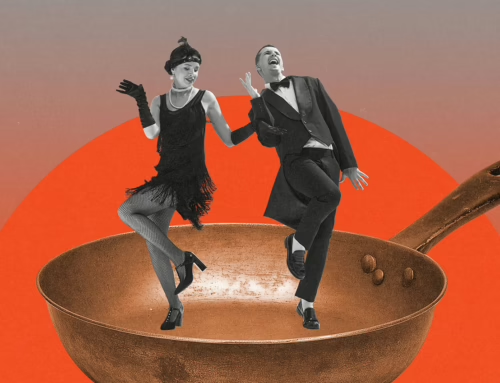Examining Gender Roles Through Paris Paloma’s “Labour” – Encouraging Women Towards Balance
Understanding the lyrics of a song can sometimes help us unlock deep-seated emotions and give voice to experiences that we’ve long been wrestling with. One such song that strikes a chord with many women today is Paris Paloma’s “Labour“. This compelling piece sheds light on gender roles and the disproportionate emotional and physical workload women often carry. Today, we will delve into an empathetic analysis of these lyrics, and encourage women facing similar challenges to seek professional help.
Verse by Verse, Unveiling The Struggles
“All day, every day, therapist, mother, maid Nymph then virgin, nurse and a servant Just an appendage, live to attend him So that he never lifts a finger”
The lines of “Labour” succinctly encapsulate the demands placed on modern women. Whether it’s nurturing as a mother, maintaining a clean home, or providing emotional support as an impromptu therapist, the tasks are endless. The reference to mythical figures—nymph and virgin—suggests expectations of women to maintain an ever-youthful and pure state, further adding to the pressure. The song importantly points out that many of these roles are performed in service to others, often leaving little time for women to focus on themselves.
“24-7, baby machine So he can live out his picket fence dreams It’s not an act of love if you make her You make me do too much labour”
The chorus speaks to the societal pressure women face to bear children and maintain the idyllic ‘picket fence’ family life, often at their own expense. Here, Paloma challenges the notion of self-sacrifice as an act of love, advocating instead for a more balanced division of labor.
Unpacking the Lyrics: The Overwhelming Pressure on Women
While some might simply view these as song lyrics, they are in reality a clear expression of the overwhelming feeling of doing too much that many women can relate to. Women today are often burdened with the majority of child rearing, housework, and emotional labor—work that is frequently overlooked and undervalued. These lyrics resonate with those who feel overworked and underappreciated, encapsulating their experiences and validating their emotions.
The Path Towards Balance: Seeking Professional Help
If you’re a woman who feels seen by these lyrics, know that you’re not alone. Many women wrestle with the feeling of being overwhelmed, and it’s okay to ask for help.
Seeking therapy can be an invaluable tool to help navigate these feelings. A mental health professional can provide a safe space to process your emotions, and also equip you with strategies to approach these challenges. Therapy can guide you in setting boundaries, asking for support, and discovering a more balanced way of living that doesn’t leave you feeling overworked or undervalued.
The Way Forward: Encouraging Equality and Balance
Paris Paloma’s “Labour” offers an unflinching examination of the weight of responsibilities many women carry. However, recognizing this weight is only the first step. We need to continue conversations around gender roles and the distribution of emotional and physical labor in order to effect change.
Through therapy, self-care, and open dialogue, it is possible for women to find a balance that aligns with their individual needs and desires. No woman should have to feel as though she is laboring alone. Reach out, speak up, and remember that seeking help is not a sign of weakness, but a step towards a healthier, more balanced life.
We can learn so much from song lyrics such as those in “Labour”, taking their message as a call to action to rethink the traditional norms of gender roles and move towards a more equitable and balanced lifestyle.
Examining Gender Roles Through Paris Paloma’s “Labour” – Encouraging Women Towards Balance
Understanding the lyrics of a song can sometimes help us unlock deep-seated emotions and give voice to experiences that we’ve long been wrestling with. One such song that strikes a chord with many women today is Paris Paloma’s “Labour“. This compelling piece sheds light on gender roles and the disproportionate emotional and physical workload women often carry. Today, we will delve into an empathetic analysis of these lyrics, and encourage women facing similar challenges to seek professional help.
Verse by Verse, Unveiling The Struggles
“All day, every day, therapist, mother, maid Nymph then virgin, nurse and a servant Just an appendage, live to attend him So that he never lifts a finger”
The lines of “Labour” succinctly encapsulate the demands placed on modern women. Whether it’s nurturing as a mother, maintaining a clean home, or providing emotional support as an impromptu therapist, the tasks are endless. The reference to mythical figures—nymph and virgin—suggests expectations of women to maintain an ever-youthful and pure state, further adding to the pressure. The song importantly points out that many of these roles are performed in service to others, often leaving little time for women to focus on themselves.
“24-7, baby machine So he can live out his picket fence dreams It’s not an act of love if you make her You make me do too much labour”
The chorus speaks to the societal pressure women face to bear children and maintain the idyllic ‘picket fence’ family life, often at their own expense. Here, Paloma challenges the notion of self-sacrifice as an act of love, advocating instead for a more balanced division of labor.
Unpacking the Lyrics: The Overwhelming Pressure on Women
While some might simply view these as song lyrics, they are in reality a clear expression of the overwhelming feeling of doing too much that many women can relate to. Women today are often burdened with the majority of child rearing, housework, and emotional labor—work that is frequently overlooked and undervalued. These lyrics resonate with those who feel overworked and underappreciated, encapsulating their experiences and validating their emotions.
The Path Towards Balance: Seeking Professional Help
If you’re a woman who feels seen by these lyrics, know that you’re not alone. Many women wrestle with the feeling of being overwhelmed, and it’s okay to ask for help.
Seeking therapy can be an invaluable tool to help navigate these feelings. A mental health professional can provide a safe space to process your emotions, and also equip you with strategies to approach these challenges. Therapy can guide you in setting boundaries, asking for support, and discovering a more balanced way of living that doesn’t leave you feeling overworked or undervalued.
The Way Forward: Encouraging Equality and Balance
Paris Paloma’s “Labour” offers an unflinching examination of the weight of responsibilities many women carry. However, recognizing this weight is only the first step. We need to continue conversations around gender roles and the distribution of emotional and physical labor in order to effect change.
Through therapy, self-care, and open dialogue, it is possible for women to find a balance that aligns with their individual needs and desires. No woman should have to feel as though she is laboring alone. Reach out, speak up, and remember that seeking help is not a sign of weakness, but a step towards a healthier, more balanced life.
We can learn so much from song lyrics such as those in “Labour”, taking their message as a call to action to rethink the traditional norms of gender roles and move towards a more equitable and balanced lifestyle.




